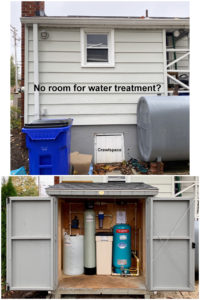
There are a lot of people out there that like to take on a problem all on their own without calling a professional to help them. While a DIY approach can be beneficial in a variety of situations, selecting a water treatment system is not one of them.
Attempting to handle your water treatment on your own can lead to a lot of mistakes, and perhaps costly fixes down the line. Companies that specialize in residential water testing, water treatment, well inspection, well disinfection, and water purification can take a great deal of the guesswork out of the process and will recommend a water treatment system that’s the most efficient for your situation. While the cost up front may seem more, a professional water testing company will save you a great deal of money down the line.
There are several common mistakes that people tend to make when selecting their water treatment systems on their own, and the results can be the presence of stinky, smelly water, among other issues that will require corrections from a professional down the line.
Understanding when to call in a professional water treatment company is important since companies that specialize in residential water treatment know far more than the average homeowner when it comes to selecting the right water treatment system for a well or other system.
Just in case you were thinking of taking the task of selecting your own water treatment system, here are a few mistakes that many homeowners tend to make, and why we recommend consulting with a professional before you begin any work:
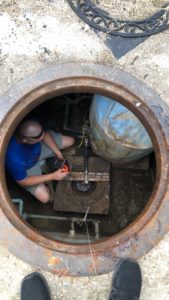 Many water treatment systems operate within a specified range. A good example is that well water is naturally acidic much of the time and can have large concentrations of iron. Many filtration systems that deal with a specific range cannot handle both conditions at once and as a result, the water will need to be treated to neutralize the acidity so that the filtration system can operate as it should.
Many water treatment systems operate within a specified range. A good example is that well water is naturally acidic much of the time and can have large concentrations of iron. Many filtration systems that deal with a specific range cannot handle both conditions at once and as a result, the water will need to be treated to neutralize the acidity so that the filtration system can operate as it should.
It’s important to know as much about your well as possible, as the number of chemicals that can seep into the well water from various sites, such as agricultural, industrial, and many others can affect the pH balance in a variety of ways that will require more than one measure to be taken when selecting a filtration system that will work.
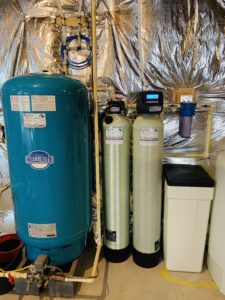
There are water treatment systems that will feature a large holding tank that is used to store the water that’s being brought up before it is allowed to enter the home. A lot of other systems will be gravity fed and will use the law of gravity to produce the same pressure for the home. Understanding what kind of system you have will greatly affect the water pressure in the home and will help avoid any unwanted damage to the well pump — if you don’t have knowledge of this system, you risk damages or incomplete water treatment.
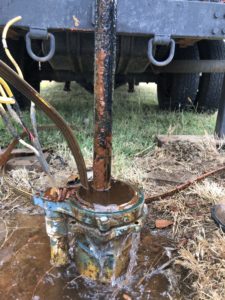
These checks will include your water pressure and an analysis of your water pressure gauge. Oftentimes, homeowners will be unaware that their pressure gauge is broken, which can cause problems when attempting to do the work yourself.
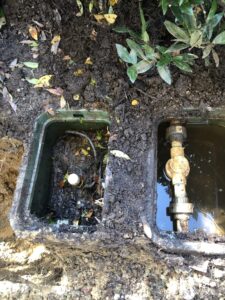
Most well water filtration systems tend to be self-cleaning and require a specific flow rate, as well. Learning how to size a system in order to get the flow rate right is something that many people tend to use professionals for, but some folks prefer to do it themselves in order to learn the ins and outs of their well and the equipment. You can always hire a professional and have them explain the results, as well.
At the end of the day, all of the other problems of a DIY residential water testing or well inspection can lead to you selecting the incorrect water treatment system for your home. This can be affected by how much studying, research, and overall work you’ve put into finding the right water treatment system on your own, but sometimes the knowledge and experience a professional has cannot be obtained despite your best efforts.
The cost for the services of a residential well inspection can be costly depending on what needs to be done and how much damage has been done by selecting the wrong system. You can become better informed by asking other homeowners who are connected to well water, experts that have a working knowledge of water treatment systems, and by doing your own research of companies in the area.
By understanding your water system’s flow rate, how each system works, and what is required of your individual well, you will be better able to select what water treatment system may work for you. However, a professional can give you the best, most accurate and trustworthy results every time.
Learning how to operate a well is not a DIY project that can be handled by the average homeowner. If you’re looking to save money it’s wise to do your research and find a cost-effective professional that can help with your well treatment needs, so you know your water is safe, healthy, and operating correctly.
National Water Service has been providing residential & small commercial water treatment, plumbing & well pump services for over 45 years. We specialize in water treatment, filtration & purification solutions as well as general plumbing to ensure clean, safe water for our customers in Maryland, DC & Northern Virginia.
Mon - Thurs
7:00am - 5:00pm
Friday
7:00am - 4:00pm
Sat - Sun
Emergency Service Available
National Water Servicing Corporation — 2025 All Right Reserved ™